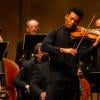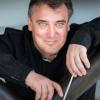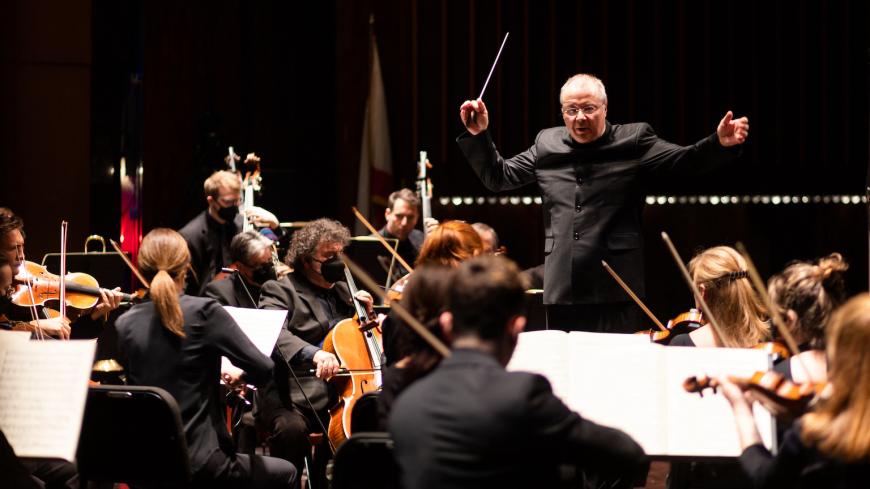
Los Angeles Chamber Orchestra ended its season Sunday evening at Royce Hall with neither a whimper nor quite a bang, but a warm, if slightly scratchy, embrace. Like being scooped up in a grandparent’s sweater, any pilling or faintest whiff of mothballs only enhanced the coziness.
This marked the completion of Executive Director Ben Cadwallader’s first full year of in-person concerts since his arrival right at the cusp of COVID closures in 2020. That it has been a “doozy” of change and challenge — per Cadwallader’s preconcert remarks — was evident in music director Jaime Martín’s pandemic-imposed absence. Guest conductor Stefan Asbury flew in with half a week to rehearse a program that, beyond Beethoven and Brahms, included the world premiere of a new piece by Creative Advisor and Composer-In-Residence Ellen Reid.
Floodplain, Reid’s second LACO commission, originated before the pandemic, but has since become “a wholly different piece” than what audiences would have heard when it was scheduled to premiere in May 2020, the composer said. The “lush and dangerous” landscape she conceived certainly invites curiosity on how it morphed in the interim.
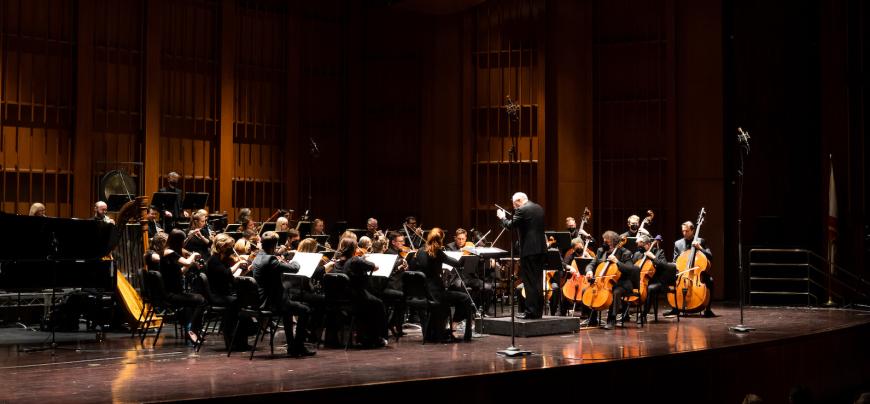
Did the open-hearted vistas broaden? Did the pensive lull deepen its rose-lavender hue? When rocky protrusions rouse the gurgling, rolling river motive into wailing waves, one wonders, was the menace always there? Strident upward slashes of brass taunt the inquiry. Yet later, ascending octaves rise hither-thither through the orchestra like the release of sky-lanterns bearing hopes and prayers into the night, and what began in expansive bounty ends with a caress.
Whereas Reid’s previous work often sang of a searing, soaring celestial quality — Rilke’s query, “Who, if I cried out, would hear me among the angel orders?” springs to mind in several instances — Floodplain flows vividly pictorial on this terrestrial plane.
Asbury spoke of Brahms’s Double Concerto for Violin and Cello as a piece written for and about friends, while Beethoven’s Fifth Symphony grappled with all humanity, yet a sense of reuniting with old buddies after long absence pervaded both. The hint of unease as you reorient, wondering if you’ll be able to recover your erstwhile rapport, heightens the relief of settling into familiar comforts.
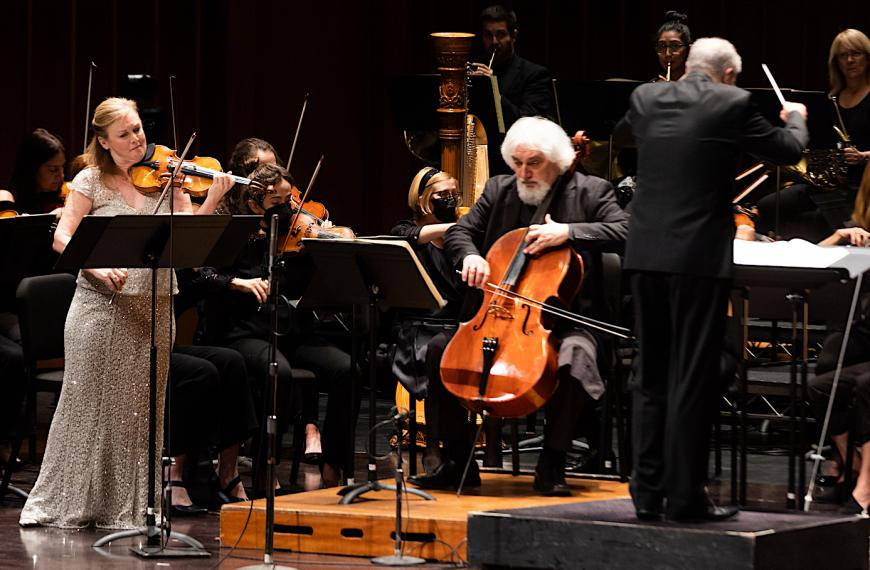
LACO’s long-serving concertmaster Margaret Batjer and principal cello Andrew Shulman stepped up as the duo soloists for the Brahms concerto. The composer’s virtuosic friends Joseph Joachim and Robert Hausmann famously premiered the piece in reconciliation after a years-long rift between Joachim and Brahms. While some interpretations since aspire to a seamless unity whereby violin and cello finish each other’s lines as if a single eight-string instrument, and others showcase soloists competing to outshine each other, here Batjer and Shulman brought a conversational cadence: affable, gently ribbing, sometimes laughing.
The two returned to their regular seats after intermission for Beethoven’s Fifth. What more, what new can one say of this most venerable veteran of warhorses? Sure-footed but not quite immaculate, LACO left one craving a greater sense of searching in the start, but the golden-retriever exuberance bounding to the finish earned the piece its place to roll in the sun.
In all three works on the program, LACO excelled in passages of fluid warmth. The word “lush” proliferated through my notes, irrepressible amid the generous billowings. The second movement of the Brahms wafted with the scent of soft leaf-padded soil in the May-afternoon glow of an old temperate forest. The second movement of the Beethoven radiated ruddy gold. Both seemed to cast a fond eye downstream at Floodplain’s soundscapes, unfurling past its perils, flush with fertile promise.






